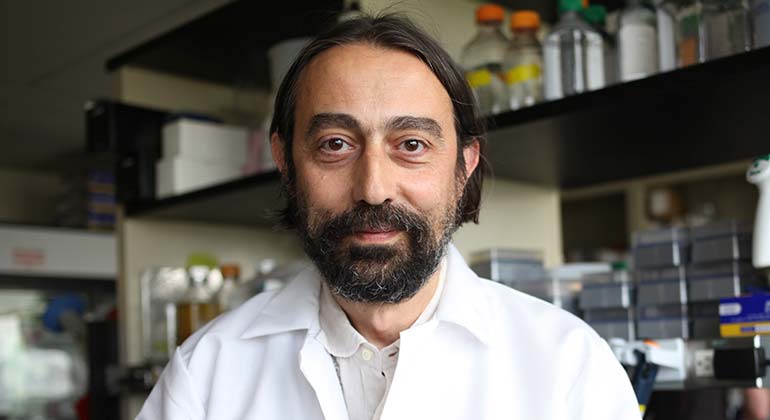Prior Dengue Virus Infection May Cause Severe Outcomes Following Zika Virus Infection During Pregnancy, Mount Sinai Study Shows
Women who have previously been infected with dengue virus may be at risk for increased damage to their fetuses and placentas if they should later become infected with the Zika virus, researchers from the Department of Microbiology at the Icahn School of Medicine at Mount Sinai report.
This study is the first to report a possible mechanism for the enhancement of Zika virus progression during pregnancy in an animal model.
Results of the study, “Dengue virus immunity increases Zika virus-induced damage during pregnancy,” were published in the February issue of Immunity, a journal published by Cell Press.
Zika virus outbreaks were first found to be associated with birth defects including microcephaly, in which the baby is born with an abnormally small head and brain, in 2015 in Brazil, where dengue virus, a virus closely related to Zika virus, is endemic. The research team led by Jean Lim, PhD, Associate Professor of Microbiology and Co-Director of Microbiology Multidisciplinary Training in the Graduate School of Biomedical Sciences at the Icahn School of Medicine at Mount Sinai, transferred dengue virus-specific antibodies into mice prior to infection with Zika virus during pregnancy. The presence of these antibodies in the mice significantly increased placental damage, fetal growth, and fetal resorption. Zika-infected human placental tissues also showed increased replication in the presence of dengue antibodies.
“Our data demonstrate that antibodies generated from a previous dengue virus infection can enhance the severity of Zika virus infection during pregnancy,” said Dr. Lim. “Our research may explain the high rate of microcephaly and birth defects observed in the recent Zika virus outbreak in South America.”
Other key authors on the study include Florian Krammer, PhD, Associate Professor of Microbiology, and Adolfo Garcia-Sastre, PhD, Director of Global Health and Emerging Pathogens Institute, Icahn School of Medicine at Mount Sinai.
About the Mount Sinai Health System
Mount Sinai Health System is one of the largest academic medical systems in the New York metro area, with 48,000 employees working across seven hospitals, more than 400 outpatient practices, more than 600 research and clinical labs, a school of nursing, and a leading school of medicine and graduate education. Mount Sinai advances health for all people, everywhere, by taking on the most complex health care challenges of our time—discovering and applying new scientific learning and knowledge; developing safer, more effective treatments; educating the next generation of medical leaders and innovators; and supporting local communities by delivering high-quality care to all who need it.
Through the integration of its hospitals, labs, and schools, Mount Sinai offers comprehensive health care solutions from birth through geriatrics, leveraging innovative approaches such as artificial intelligence and informatics while keeping patients’ medical and emotional needs at the center of all treatment. The Health System includes approximately 9,000 primary and specialty care physicians and 11 free-standing joint-venture centers throughout the five boroughs of New York City, Westchester, Long Island, and Florida. Hospitals within the System are consistently ranked by Newsweek’s® “The World’s Best Smart Hospitals, Best in State Hospitals, World Best Hospitals and Best Specialty Hospitals” and by U.S. News & World Report's® “Best Hospitals” and “Best Children’s Hospitals.” The Mount Sinai Hospital is on the U.S. News & World Report® “Best Hospitals” Honor Roll for 2024-2025.
For more information, visit https://www.mountsinai.org or find Mount Sinai on Facebook, Instagram, LinkedIn, X, and YouTube.
